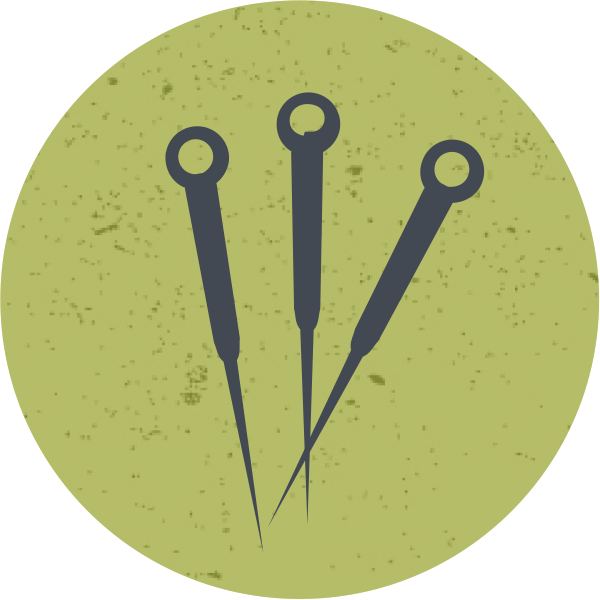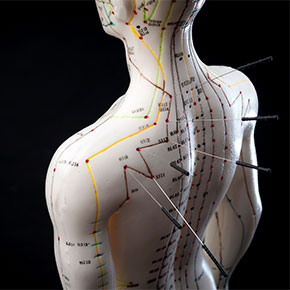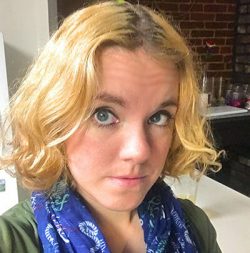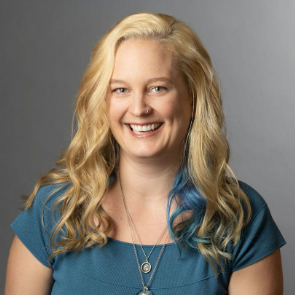Acupuncture Degree and Career Guide
You May Also Enjoy
What You’ll Do as an Acupuncturist
With a career in acupuncture, you can use time-tested healing techniques and modalities to help patients regain their health.

Acupuncture is an ancient practice that promotes healing by inserting needles into the human body to improve the flow of energy, called qi. From its roots in ancient China, acupuncture has become a trusted, healing remedy used all around the world.
In This Article
Acupuncturists can be found in a variety of settings, from independent clinics to large medical centers. Their expertise is backed by an increasing wealth of scientific research demonstrating the positive effects of acupuncture.
Patients see an acupuncturist for a range of health problems, including pain, infertility, and respiratory disorders. Some are seeking an alternative to Western medical practices, while for others, acupuncture is used to complement existing treatments.
Roles and Responsibilities

The primary treatment provided by acupuncturists involves placing specialized needles in a patient’s meridians, or energy pathways. Acupuncture needles are sterile and about as thick as a strand of hair. You might use these needles warmed or at room temperature, depending on the patient and treatment.
But your first step in treating a patient is to get a complete medical history and learn about any symptoms they’re currently experiencing. This is important because the placement of acupuncture needles needs to be incredibly exact and tailored to the individual person.
You’ll also do a medical exam of each patient. You’ll check some of the standard vital signs that Western healthcare professionals check, such as pulse, blood pressure, and respiration, but you’ll also take care to examine the patient’s tongue. Your education as an acupuncturist will teach you what to look for in a tongue exam, and how certain indicators such as its shape, color, and texture can dictate the treatment you’ll provide.
Many people are surprised by how meticulous and thorough acupuncture exams are.
“While acupuncture could be considered a form of energy medicine, acupuncturists are trained in basic medical sciences,” says Jennifer Bennett, ND, LAc, a holistic practitioner and acupuncturist in Seattle, “and many acupuncturists will go through thorough physical exams and review of systems during appointments, just like other medical practitioners.”
Tools of the Trade
Needles aren’t the only tool an acupuncturist has. You might also apply heat, pressure, friction, or even electromagnetic pulses along a patient’s meridians to achieve healing. And depending on your training and experience, there are a variety of additional methods you can use to treat patients.
Other techniques that are commonly used include:
Moxibustion:
The burning of moxa, a cone-like stick made of mugwort leaves, on acupuncture points
Cupping:
The act of using glass cups to create a vacuum on the skin to help move blood and break up connective tissue
Gua sha:
The act of scraping or applying friction on the skin to help move blood and release heat
Electroacupuncture:
The application of electricity to needles to help move qi and contract muscles
Ion pumping:
The use of one-way, electron-moving cables to help balance out osmotic concentrations in the tissues
Tui na:
A form of Chinese massage that helps to disperse qi and break up muscle tension
What You’ll Treat
Acupuncturists can treat a wide range of ailments. The effects of acupuncture on many conditions are still being studied. Currently, studies by the National Center for Complementary and Integrative Health (NCCIH) show that acupuncture can provide relief for:
Acupuncture’s effects on other conditions need to be studied further, but many practitioners and patients have seen positive effects on numerous other conditions.
“Acupuncture is best known for treating pain, so many people seek acupuncture for pain relief,” explains Bennett, “but acupuncture is also very good at treating (other) kinds of concerns, from cardiovascular complaints to infertility.”
In her own practice, Bennett often uses acupuncture to help regulate immune system function in those with autoimmune diseases.
“Since acupuncture has the ability to affect all organ systems, it can affect all conditions in the body in one way or another,” she says.
In addition to treating pain, acupuncturists also often address:
Typical Career Paths and Workplaces
Many acupuncturists see patients in private clinics, but that’s not your only option. Places acupuncturists can be found include:
Where You’ll Work
What You’ll Do
Private clinic
Wellness center or spa
Integrative medical center
Holistic health center
Do Acupuncturists Work with Other Providers?
It’s not unusual for acupuncturists to have their own clinics, but many acupuncturists work alongside other healthcare professionals, where they bring their healing skills to a wider care plan.
In some cases, a team might be composed of other holistic health providers. If you work at an integrative medical center, most team members might be Western healthcare practitioners.
Either way, a team approach can you help get an even deeper understanding of a patient’s needs. Working with other professionals, you can help patients heal and achieve their health goals.
“Acupuncturists are a great part of a health team as a complementary approach,” Bennett says. “(It) can often help add additional benefits to other conventional and alternative treatments.”
A Professional Acupuncturist Shares Her Career Progression

They arrive at her Seattle acupuncture office seeking relief from pain—sore necks, tense shoulders, tight backs—and treatment for conditions ranging from arthritis to anxiety, gout to insomnia. They get noticeable results, typically in short order.
“I’m really close to my patients,” says Yee Trenh.
What she likes most about her job
That’s the best thing about acupuncture, says Yee. She can make a powerful difference in people’s lives with just a few low-tech tools: needles. The results are often speedy and the side effects are minimal. (In the hands of a competent clinician, a bruise is the biggest downside a patient will encounter.) And, unlike her mainstream medical counterparts, Yee has ample time to spend with her patients. She’s eager to get to the heart of their conditions and concerns.
How she entered the profession
A one-time lab technician, Yee knew that she wanted to help people heal. She studied for three and a half years to earn degrees in both acupuncture and traditional Chinese medicine from Bastyr University near Seattle.
Needles work on the external body, she explains, but the Chinese herbal preparations act on the inside. For Yee, it’s a potent combination that’s more than the sum of its parts: “I always tell my patients, one plus one never equals two. It could be three or four or even five.”
Her degree coursework included classes in anatomy, physiology, nutrition and herbal formulas. Within the acupuncture program, she learned therapeutic approaches in the fields of gynecology, pediatrics, geriatrics and more. She has a special interest in supporting bone health, using a technique called die-da [DEE-uh dah] to speed recovery from injuries.
Life after school
After graduating, Yee traveled to China for more training in a hospital setting. There, it was common for her to treat 100 acupuncture patients a day. “You see all different types of conditions,” says Yee. “It really builds up your confidence.”
Back in the U.S., she spent a year working for another practitioner, learning the ropes of running a business as she gave treatments. She hung out her own shingle in 2012. Steadily growing her practice through word of mouth, Yee now sees patients for 20 to 30 hours each week.
Although some MDs still dismiss Yee and her fellow acupuncturists as “voodoo doctors,” the ancient healing art is gaining acceptance—especially on the West Coast. “My patients really open up to me,” says Yee, who marvels at the ability of simple tools to do so much good.
What Degree Do I Need?
You’ll need at least a master’s degree to practice acupuncture. You can also earn a doctoral degree. Either way, you’ll need a bachelor’s degree or higher before you can pursue your education in acupuncture. Some programs will let you earn a bachelor’s alongside your master’s.
The program you attend will teach the philosophy behind acupuncture and help you master acupuncture techniques. Depending on your program, you might also study Chinese herbs and medicine. There are a few program types available, but as rule, you can choose from:
No matter what you choose, you’ll need to make sure your program is accredited by the Accreditation Commission for Acupuncture and Herbal Medicine (ACAOM). You’ll need to have attended an ACAOM-accredited school to earn certification and licensure in most states.
Do I Need a License to Practice?
You’ll need a license to practice in most states. Licensure is currently not required in:
All other states require some sort of licensure, although requirements vary. Generally, you’ll need to have earned a degree from an accredited school and have passed exams. Even if your state doesn’t require licensure, it still might be a good idea to earn national certification. This can both increase your credibility and allow you to accept some kinds of insurance for payment.
What About Certification?
Like licensure, certification is generally—but not always—required. When certification is required, you’ll need to pass an exam given by the National Certification Commission for Acupuncture and Oriental Medicine (NCCAOM). To qualify for the exam, you’ll need a degree from an ACAOM-accredited school and to pass a Clean Needle Technique (CNT) course.
Several states require you to be licensed, but not certified. In these states, you’ll still need to take exams from NCCAOM, but you won’t need to earn and maintain NCCAOM certification. There is one exception: In California, you’ll need to be licensed, but you won’t take the NCCAOM exams. California has its own exams and license process.
How Much Can I Earn?
Your acupuncture salary depends on several factors, including your experience, whether you’re licensed, and where you work. If you run your own clinic, your salary might depend on your clinic’s success. The number of patients you see, your ability to take insurance payments, and the recommendations you get based on your reputation in the local community can all make a huge difference in the amount of money your clinic brings in.
Career Outlook
Acupuncture is a growing field. Recent research has backed its use as a treatment for several conditions. Additionally, acupuncture is increasingly reimbursed by insurance companies and used as part of complementary or integrative medical approaches. This increasing respect from Western medicine is driving job growth for acupuncture practitioners.
“As people in the U.S. become more aware of the uses of acupuncture for things other than just pain, the demand for acupuncture is growing,” says Bennett. “Acupuncturists are often booked out for many weeks. And there is an increasing demand for acupuncturists in small towns and rural areas where acupuncture is difficult to get.”
The Many Facets of Acupuncture

Your job as an acupuncturist can take many forms, depending on the type of degree you hold, the specialties you offer, and whether you own your own practice or work for someone else. For example, if you augment a basic needling focus with a certification in Chinese herbs and run your own clinic, you may spend a fair amount of your time prescribing herbal treatments to help address your patients’ ailments.
“This can include applying herbs or topical formulations directly to the skin,” says Bennett, “or it could be using herbal formulas to help aid the effect of the acupuncture treatment.”
More Than Just Treatment
If you run your own clinic, administrative duties will likely take up a big part of your day. You’ll need to ensure you take time to update patient records and schedule appointments. You’ll also need to make sure you’re keeping on top of billings and minding other business essentials like ordering supplies and marketing your practice.
Conversely, if you work at a large integrative medical center, you’ll have different responsibilities. In addition to seeing clients, you might also attend meetings to collaborate with other healthcare providers on patient care and treatments.
Do I Have What it Takes?
All acupuncturists provide healing to their patients and, as with any healthcare provider, you’ll need to be compassionate and have a genuine desire to help your patients feel better. Other qualities that might make you great for this role include:
Patience
You’ll likely work with patients who have been dealing with years of chronic pain or have tried other therapies without seeing results.
Great listening skills
A successful acupuncturist will spend a good amount of time exploring the source of their patients’ pain from a number of angles. You’ll be asking a lot of questions—and getting a lot of information from your patients.
Attention to detail
Acupuncture is a practice that requires you to know exactly what you’re doing, and to do it right, every time.
Business sense
Since many acupuncturists own clinics, it helps to have some skills in areas like marketing and budgeting.

Written and Reported by:
Stephanie Srakocic
Contributing Writer

With professional insight from:
Jennifer Bennett, ND, LAc
Naturopath and Professor, Bastyr University
Dr. Nhoc Yee Trenh, EAMP, L.AC
Licensed Acupuncturist and Diplomat in Oriental Medicine
